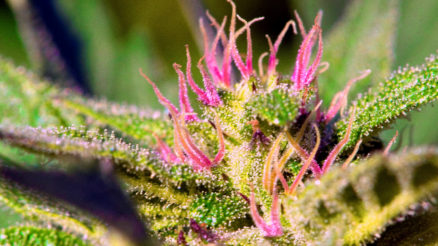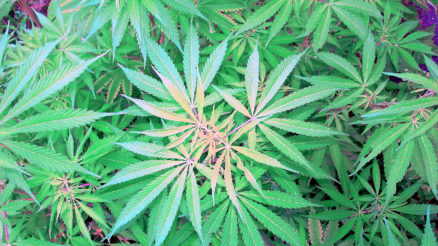Hawaii Resolution Urges NFL to Allow Injured Players To Use Cannabidiol In Lieu Of Opioids
A resolution urging the National Football League (NFL) to allow players to use cannabidiol for medical purposes has been filed in Hawaii’s Senate.
 Senate Concurrent Resolution 34 was filed today in the Hawaii Senate by Senator William Espero (D) along with seven cosponsors. The resolution states; “BE IT RESOLVED by the Senate of the Twenty-ninth Legislature of the State of Hawaii, Regular Session of 2018, the House of Representatives concurring, that the National Football League is urged to allow injured National Football League players to use cannabidiol in pill or liquid form, in lieu of opioids, to address the pain from work-related injuries”.
Senate Concurrent Resolution 34 was filed today in the Hawaii Senate by Senator William Espero (D) along with seven cosponsors. The resolution states; “BE IT RESOLVED by the Senate of the Twenty-ninth Legislature of the State of Hawaii, Regular Session of 2018, the House of Representatives concurring, that the National Football League is urged to allow injured National Football League players to use cannabidiol in pill or liquid form, in lieu of opioids, to address the pain from work-related injuries”.
The resolution also states; “BE IT FURTHER RESOLVED that certified copies of this Concurrent Resolution be transmitted to the Commissioner of the National Football League and the respective General Managers of each of the teams that compose the National Football League.”
Senate Concurrent Resolution 34 has been assigned to the Senate Labor Committee. The full text of the measure can be found by clicking here.
Below is the reasoning behind the proposal:
WHEREAS, every day, more than 90 Americans die after overdosing on opioids, including prescription pain relievers, heroin, and synthetic opioids such as illicitly manufactured fentanyl; and
WHEREAS, the misuse of and addiction to opioids is a serious national crisis that affects public health as well as social and economic welfare; and
WHEREAS, the Centers for Disease Control and Prevention estimates that the total economic burden of prescription opioid misuse alone in the United States is $78,500,000,000 per year, including the costs of healthcare, lost productivity, addiction treatment, and involvement with the criminal justice system; and
WHEREAS, in 2015, more than 33,000 Americans died as a result of an opioid overdose and an estimated 2,000,000 individuals in the United States suffered from substance use disorders related to prescription opioid pain relievers, and 591,000 suffered from a heroin use disorder; and
WHEREAS, approximately 21 to 29 percent of patients who are prescribed opioids for chronic pain misuse them; between eight and 12 percent develop an opioid use disorder; an estimated four to six percent of individuals who misuse prescription opioids transition to heroin; and about 80 percent of individuals who use heroin first misused prescription opioids; and
WHEREAS, this situation has become a public health crisis with devastating consequences, including increases in opioid misuse and related overdoses as well as a rising incidence of neonatal abstinence syndrome due to opioid use and misuse during pregnancy; and
WHEREAS, the increase in injection drug use has also contributed to the spread of infectious diseases such as HIV and hepatitis C; and
WHEREAS, many National Football League players suffer from serious injuries during their careers due to the nature of their work and are often prescribed opioids to help alleviate the pain from their injuries; and
WHEREAS, the dangers of overuse and abuse of opioids have been well-documented; and
WHEREAS, however, research studies have demonstrated that cannabidiol is non-intoxicating but exerts a number of beneficial pharmacological effects–for instance, cannabidiol is anxiolytic, anti-inflammatory, antiemetic, and antipsychotic; and
WHEREAS, although cannabidiol is a component of marijuana, it does not produce the psychoactive effects that have made marijuana attractive for recreational use; and
WHEREAS, it may be preferable for and beneficial to the health and well-being of injured football players to be allowed to use cannabidiol in pill or liquid form, in lieu of opioids, to address the pain from their work-related injuries
A companion measure (House Resolution 40) was also filed in the House of Representatives by Representative John Mizuno.
The post Hawaii Resolution Urges NFL to Allow Injured Players To Use Cannabidiol In Lieu Of Opioids appeared first on TheJointBlog.
>View original article
Author: Anthony Martinelli



